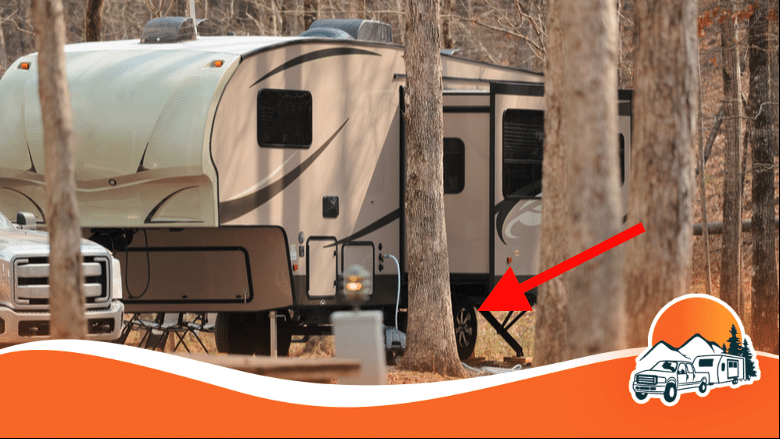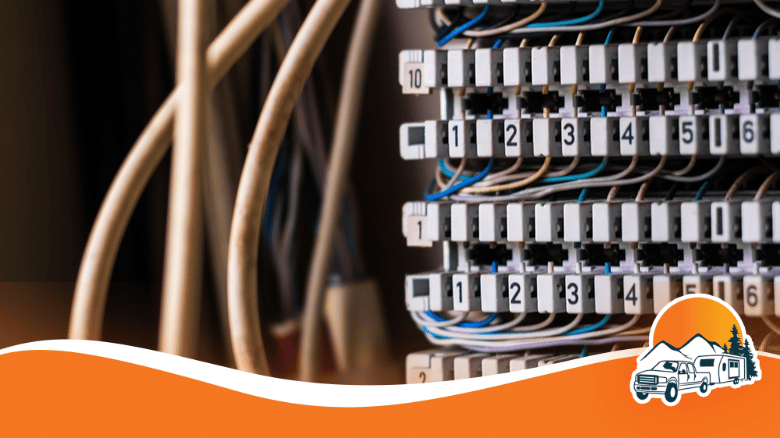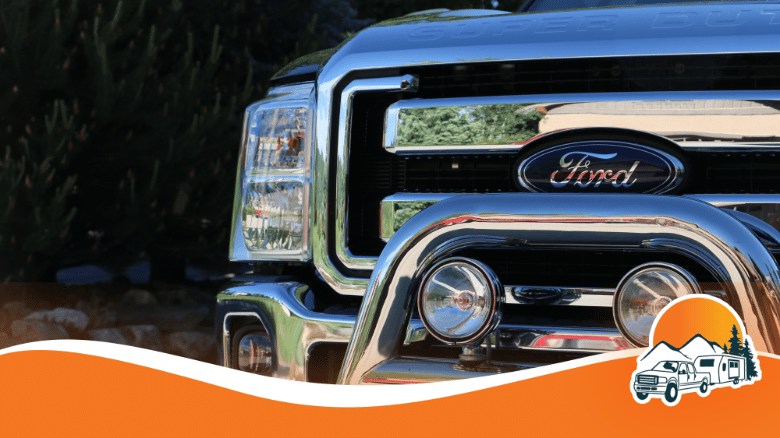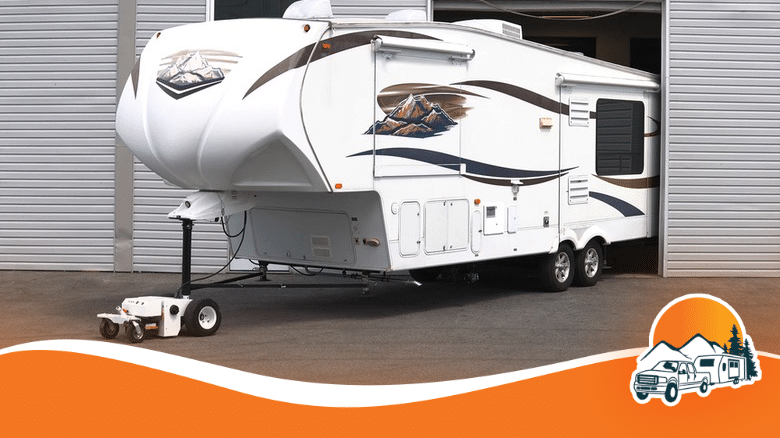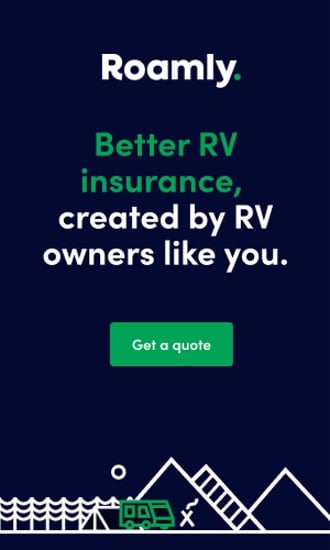Buying a used RV can be a stressful process. All buyers want to make sure they pay the right amount for the RV and don’t pay more than what it’s worth.
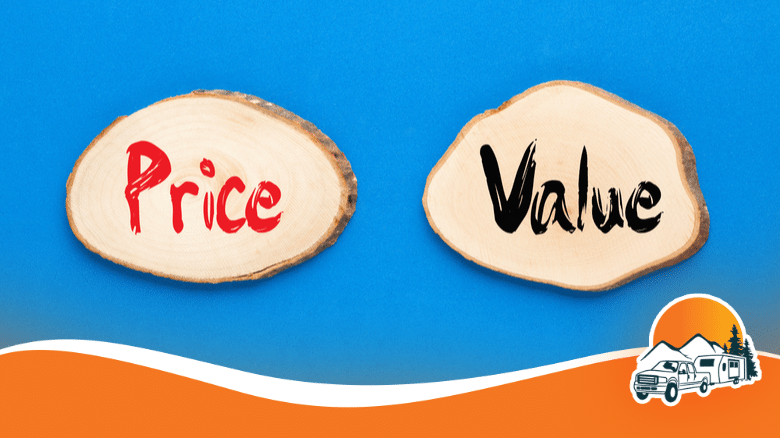
If you are also thinking of buying a used RV, we’ve got you covered. This article provides you with the best techniques and information for finding the value of a used RV or any vehicle.
Stay with us as we provide you with all the information you need about purchasing an RV and much more.
Why Should You Buy a Used RV?
Buyer confusion is at its peak when they are buying an RV. People cannot decide whether to buy a used RV or to go for the option of a new RV.
Individuals stuck in this confusion cannot stop weighing the pros and cons of buying a new RV or a used one.
This section will delve deep into this problem and tell readers why they should opt for used RVs.
Financial Situation
The grim financial situation and the rising inflation costs around us prove just how difficult it is for a person to buy a new RV today. New RVs tend to be on the expensive side of things and require a substantial investment. On the other hand, Used RVs offer almost similar features as some new makes and models, but with a significant cost-saving benefit.
People who have a flailing back balance can get their hands on a used RV at a lower cost to enjoy the same benefits as a new one.
Account for Depreciation
You cannot afford to lose value on your RV, and new RVs tend to do just that when driven on the road. The moment you drive your new RV out of the dealership, it will drop 10 percent off its value. If you’re driving the new RV around town, it will lose a further 10 percent over the first year of use.
Hence, your RV will now, in a year, have undergone 20 percent depreciation. These are the kinds of losses that an average person cannot bear.
Compared to a new RV, used RVs offer a brilliant deal. Used RVs have already depreciated a fair chunk of their value and can be purchased at reduced rates. Moreover, since they aren’t that old, used RVs give a similar experience to a new one.
After extensive research and effort, you can surely find a used RV with the same look and feel like a new one. Lastly, used RVs don’t tend to depreciate as heavily as new ones. So, if you plan on selling your used RV after a year of use, you wouldn’t have lost so much on it. But the same cannot be said about new RVs.

Same for Less
Buyers love saving money on high-profile purchases, and what better way to save than getting a used RV for less. Used RVs haven’t been driven much, so their suspension, engine, and other components are working as smoothly as they did upon purchase. As a result, you get the same features and benefits for less.
Easier with Financial Loans
Used RVs are a lot easier to finance than new RVs. The higher the RV price, the more considerable the principal amount you pay for the loan and the periodic deposits would be.
Techniques for Assessing Value of RV
You will need to assess the value of an RV if you are buying, selling, or trading the camper. In all situations, it is best to know the actual cost of the used RV and how you should go about the process.
Some of the techniques that come in handy here are:
Start by Finding NADA Values
NADA, also known as the National Automobiles Dealers Association, can help provide you with a free guide for finding the value of your used RV.
The association has valuations on its website, and you can also contact them to find the correct value for the RV you are about to buy.
The valuations they provide are based on:
· Low Retail Value: The low retail value is for used RVs with dents and blemishes on the exterior body. RVs valued at this rate will require repairs around the outer surface and interior of the RV.
· Average Retail Value: The average retail value is a convention followed by RV campers with clean exteriors and interiors that do not have any glaring defects.
You can go to NADA’s website and enter your query in the sections they provide to evaluate your property accurately.
Compare Used RV Prices
The second technique you can follow is to compare the value of the RVs you see in the market. You have plenty of price-checking tools, including RVT.com. The price checking tool at RVT can help you evaluate listings similar to the one you plan to purchase so that the value is accurate and not overestimated.
The comparison of different RVs will help you analyze the actual value of your RV, along with any other additional information you require. This information will go a long way in meeting your demands and give you a fair idea of what is to come.
What to Do After Buying a Used RV
Congratulations on buying that used RV. You’re probably exhausted after purchasing the RV, but your journey doesn’t end here. Buying a used RV is usually the starting point of a long list of checks and processes required for the seamless transition of a used RV to your name.
Here we mention some of the things you need to do right after buying a used RV:
Title Registration and Transfer
You aren’t allowed to legally drive your vehicle on the road if it isn’t registered in your state. Most dealers help you with all the paperwork of buying the RV, so you may not have to think about title registration and transfer.
However, if you’ve purchased your new RV from a private seller, you would have to wait at the DMV and pay hundreds of dollars to get the vehicle registered in your name.
You will need the following details and paperwork before you get the RV registered:
- The title document in your name
- A completed vehicle safety inspection
- A completed emission test
- Proof of your insurance
- Multiple forms of your identity
- Proof of your address
Within this task, you will need the following paperwork and details before transferring the title to your name:
- An MCO or a Manufacturer’s Certificate of Origin if the RV you’re moving is brand new and doesn’t have a title year.
- The current title from the owner you’re buying.
- An invoice or bill of the transaction from the dealership of your choice
Insurance
Insurance is usually something you should have figured out before driving the RV away from the lot.
Your insurer will need the Vehicle’s VIN before the transaction for everything to happen smoothly. To prepare yourself for the eventual expenditure, you should budget the insurance cost within the legal cost of acquiring the used vehicle.
Don’t think of insurance as an external expenditure, but think of it as the one you must undergo to drive the RV in town legally.
You can choose the best insurance plan based on your understanding and choose whichever looks the most convenient to you.
Read the Owner’s Manual
You should consider reading the owner’s manual in full detail and try to understand every bit of what is written in it.
The owner manual usually contains all necessary details about the RV and how it should be handled or driven. The manual also includes essential information required for checking the engine oil, brake oil, water level, and gear oil within the RV.
Often, RV owners don’t know the location of the numerous components within their RV. This is where the manual can come to their rescue. Go through the manual in your free time and make sure that you know all the details relevant to the smooth operations of the RV.
Take the RV to a Trusted Mechanic
Once you have gone through the essential details mentioned within the manual, you can take the RV to your trusted mechanic for a checkup. Your mechanic will study all the vital components of the RV and let you know if you require any repairs or anything of that sort.
It would help if you had all the following items checked:
- All the filters in the RV
- All the fluids
- The tires
- The brakes
Additionally, get the engine checked to see if there is a need for fine-tuning or repair. With the thumbs up from your mechanic, you can take it to the road and start enjoying your recreational traveling.

